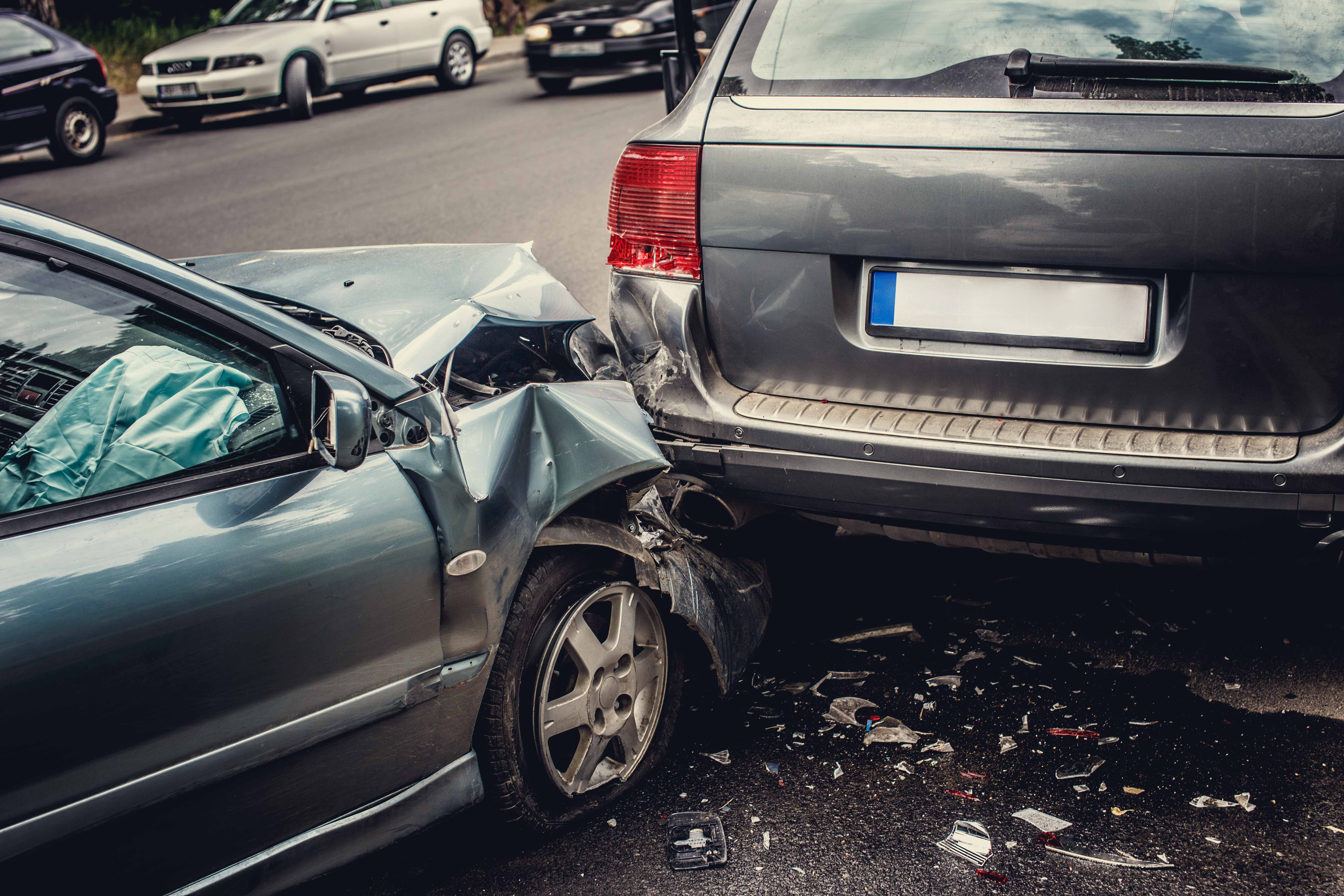Nationwide, vehicle collisions kill or seriously injure millions of people every year. Georgia has one of the highest death rates in the United States. Broken bones, internal bleeding and head injuries are among the most common injuries in these collisions. Today’s vehicles have several advanced safety features that reduce injuries. But the cars today are also bigger, faster and more distracting for drivers than ever before. Safety improvements haven’t kept up with engineering improvements.
These severe injuries are challenging to diagnose and treat. Mainly because of these issues, the medical bills alone in an injury-related case usually exceed $50,000. Most victims can’t work as they recover from their injuries. As medical and other unpaid bills pile up, insurance adjusters repeatedly call to convince victims to settle their claims. Many victims feel caught in a vortex, so it’s tempting to reach for this lifeline.
An accident attorney in Georgia offers a much better lifeline. Insurance company settlement offers to protect insurance company profits, while an attorney obtains the money these victims need and deserve. Car crash victims need money to pay for medical and other expenses. They deserve compensation so they can move on with their lives. Keep reading to learn about some special rules the Peachtree State has in these areas.
Georgia Overview
The number of fatal car wrecks in Georgia continued rising in 2021, primarily because of the “big three” - distracted driving, speeding and impaired driving. These driving mistakes are a severe problem in all 50 states, and not just in this state. An accident attorney in Georgia has several legal options, primarily based on the evidence in the case.

Ordinary Negligence
Negligence is a lack of care. This idea comes from a long line of court cases, including 1932’s Donoghue v. Stevenson. A bottle of beer contained a dead snail. The woman who bought the beer sued the bottler, claiming the bottler should have monitored the assembly line and ensured that beer bottles contained only beer. The court used the so-called neighbor principle to side with the woman. This idea is based on the old story of the Good Samaritan.
Over the years, the neighbor principle became the duty of reasonable care, which has four parts in Georgia:
- Duty. Most Georgia motorists have a duty of reasonable care. They must always drive defensively and obey the written and unwritten rules of the road. Common carriers, such as Uber drivers, have a higher duty of care in Georgia. Since they transport goods and people for profit, common carriers have an obligation of utmost respect. They must go above and beyond to avoid car wrecks.
- Breach. A breach is a violation of duty. Noncommercial motorists breach the duty of care when they speed excessively, drive drunk or drive while distracted. Marginal mistakes, like speeding 2 miles per hour over the limit, usually aren’t a breach of duty. Almost any error would be a breach of duty if the driver were a commercial operator because of the higher duty of care. As the old saying goes, the bigger they are, the harder they fall.
- Cause. This element has two elements. First, an accident attorney in Georgia must prove factual cause. That’s a link between the breach discussed above and the damage discussed below. Second, the victim/plaintiffs must prove legal cause or foreseeability (possibility) of injury. If Bill crashes into Ted and Ted’s wounds get infected, Bill is only legally responsible for the crash damages. The wound infection damages weren’t foreseeable.
- Damages. An accident attorney in Georgia usually calls this element “actual damages.” The victim/plaintiff must sustain a tangible injury. There’s a difference between visible and tangible. Post-traumatic stress disorder, a specific type of brain injury, isn’t a visible injury, but it’s a tangible injury. Also, the damages must be something that money can address, at least partly. Money doesn’t make people feel better, but it does make their lives easier.
Some states, such as neighboring Florida, impose an additional requirement. Along with about a dozen other states, the Sunshine State has a no-fault insurance law. Victims may file legal claims only in certain cases. However, Georgia lawmakers repealed the state’s no-fault law in 1991.
These four elements (or five in some states) establish a negligence case. Next, the insurance company gets the ball. Once again, the principal aspects of insurance company defenses are the same everywhere, but the specifics vary in different states. The seat belt defense and comparative fault are two prime examples.
Georgia has a comprehensive set belt requirement. All front-seat passengers of any age must wear seat belts. Failure to buckle up could result in a ticket, but it doesn’t reduce the payment in a car crash case.
At first, this stance seems unusual. After all, people are responsible for their safety. Still, this position is consistent with Georgia’s mitigation rule. Victims don’t have a duty to lower their damages before wrecks. Otherwise, we’d have to drive armored cars to work and wear crash helmets behind the wheel.
Comparative fault, or contributory negligence, is a doctrine that shifts blame for an injury from one party to another one. Let’s return to Bill and Ted. If the two drivers crashed into each other when Bill was speeding and Ted changed lanes without signaling, they might be at fault.
In all states, jurors must listen to all the evidence in these cases and, based on that evidence, divide fault between the two. That division might be 60-40, 80-20 or any other proportion.
The next step is different in different states. In some states, such as Alabama, partially at-fault victims aren’t eligible for compensation. But Georgia is a modified comparative fault state with a 50% bar. Victims who are no more than 50% responsible for a wreck receive a proportional share of damages.
Negligence Per Se
The duty of care usually sets the standard in negligence claims. Sometimes a safety law sets the standard. Speeding is a good example. If first responders gave Bill a speeding ticket, he could be responsible for damages as a matter of law.
This rule, which is called negligence per se, applies only if a driver, and only one driver, gets a ticket. Authorities rarely issue citations in injury cases, even in fatal injury cases. They’re usually too busy securing the scene and tending to injured victims to worry about the fault.
If it applies, negligence per se usually raises a claim’s settlement value. These cases are easier for an accident attorney in Georgia to prove in court. We will say more about a claim’s settlement value below.
Once again, the negligence per se principle is the same in most states. However, traffic laws are different in different forms. Handheld cell phones are a good example.
Georgia is one of only a few states with a hands-free law. Drivers cannot use or hold a device behind the wheel. Moreover, since the hands-free law is a primary law in Georgia, the police are more likely to issue cell phone tickets.

Accident Attorneys in Georgia and Compensation Available
All car crash victims are alike in many ways. As mentioned, they all need money to put their lives back together. At the same time, not all states treat victims alike under their negligence laws.
Many states have economic, non-economic and punitive damage caps. Punitive damages are extra damages that punish parties who blatantly ignore known risks. In December 2021, a Texas jury awarded a family $300 billion in punitive damages after an alcohol-related wreck that killed two people. Such significant damage awards are very rare, but they can happen, especially in Georgia. The Peachtree State doesn’t limit the three kinds of damages. The jury’s authority is absolute in this area.
On a related note, Georgia has a comprehensive collateral source rule. Before we discuss this complex rule, let’s take a step back. Often, there’s a difference between the amount billed and paid. For example, if Ted went to Georgia State, his tuition bill might be $10,000. Financial aid might mean he pays only $5,000.
Medical bills and other accident-related expenses sometimes work the same way. Bill’s medical bills might total $50,000. His group health insurance company might pay half those bills, or Bill’s accident attorney in Georgia might negotiate with the doctor and cut his bill in half.
That’s where the collateral source rule applies. In some states, insurance companies can use the difference between the amount billed and the amount paid to reduce the victim’s damages. In Georgia, though, the amount billed is the only number that matters.
We should also discuss vicarious liability, or third-party liability. Just as there could be a difference between the amount billed and the amount paid, there’s often a difference between the legally responsible party and the financially responsible party.
Respondeat superior is one example. Employers are liable for damage if their employees are negligent during the course and scope of their employment. Commercial driver cases usually involve the respondeat superior doctrine, which is the same in all states.
Some other vicarious liability theories differ in various states. Georgia is one of the few states with a dram shop law. This law holds commercial alcohol providers, like clubs and saloons, financially responsible for damages if they knowingly sell alcohol to visibly intoxicated people who later cause car wrecks. Evidence of intoxication usually includes physical symptoms like slurred speech and unsteady balance.
Negligent entrustment is another example. This legal doctrine holds owners responsible for damages if they knowingly allow incompetent operators to drive their cars or trucks and those unqualified operators later cause car wrecks. Evidence of incompetence could be the lack of a valid drivers’ license or a recent history of at-fault wrecks.
Georgia doesn’t have a vicarious liability law. This makes it hard for an accident attorney in Georgia to prove negligent entrustment in commercial cases, like Enterprise Rent-a-Car cases. However, courts in the Peachtree State use the family purpose doctrine, making it easier to prove negligent entrustment in private matters, like a husband who loans his car to his wife.

Special Rules in Large Georgia Cities
These formal rules usually apply to all negligence claims in all Georgia courts. Still, the informal and unwritten rules often vary significantly in different cities. An accident attorney in Georgia must account for these differences. Just as it’s hard to drive with one eye on the road and one eye on a device, it’s hard to win a case with one eye on the issue and one eye on a rulebook.
Atlanta
Like in most other cities in the country, fatal car crashes in Atlanta increased in 2020 and again in 2021. However, city officials remain committed to the Vision Zero proposal they unveiled in 2020. Atlanta mayor Andre Dickens believes that reducing the speed limit to 25 miles per hour on most city roads and some other safety changes could end traffic fatalities. "Vision Zero is an invaluable resource that enables us to lower speeds, reduce crashes and stop traffic deaths in our city," he recently said.
In theory, the mayor may be right. Speed is a factor in about a third of the fatal car wrecks in Atlanta. In practice, though, Vision Zero has failed. The number of deadly impacts increased in 2020 and increased even further in 2021. When politicians fail to protect people, an accident attorney in Georgia stands in the gap.
Vision Zero is a new thing, but many Fulton County courtrooms haven’t been updated since the early 2000s, or even before then. As a result, many courtrooms aren’t set up for virtual pretrial hearings and electronic evidence presentations. These deficiencies, especially the electronic evidence, could affect a car crash claim. Frequently, to maximize a claim’s settlement value, lawyers in these situations rely on the police accident report, medical bills and other forms of evidence that are easier to present.
Augusta
Because of the city’s layout, speed-related wrecks are a severe problem in Augusta. "A lot of people speeding, usually with the 55 miles per hour, they go over 65, 75, and it’s to the point you have to get on the side of the road so you won’t get hit," one resident remarked. Speed increases the risk of a wreck and the force of collisions.
In speed-related wrecks, accident attorneys in Georgia often use electronic evidence, such as a vehicle’s Event Data Recorder (EDR). Like a commercial airplane’s black box flight data recorder, an EDR measures and records vehicle speed and other metrics. Such electronic evidence is very persuasive in court. Unlike people, computers are never wrong or biased. Moreover, electronic evidence is concrete. A witness might testify that a car was speeding. EDR information says the vehicle was traveling 87.2 miles per hour.
Fortunately, many Richmond County courtrooms are well equipped to handle electronic evidence. This equipment includes large high-definition monitors and favorable layouts so that jurors can see the screen easily.
Columbus
Even before the pandemic, Columbus's fatal car crash numbers were trending upward. Nearly all these wrecks happened in the western half of Columbus.
Like many other communities, Columbus and its surrounding areas cover several counties. As a result, there’s a good chance a victim lives in one county but experiences a wreck in another county. These cases usually involve venue issues.
The venue is a court’s authority to settle a dispute. Typically, victims may file legal actions in the county where they reside or the county where the injury occurred. Either choice has some pros and cons. For example, it’s usually easier for victims, such as seriously injured victims who can't travel easily, to file in the county of residence. But it’s easier to obtain maximum compensation in the county where the accident happened because that’s where most of the evidence is located.
Macon
Bibb County is the 10th most dangerous area in the country for pedestrians. A safety committee has met regularly since 2015, but the committee has yet to make any progress in lowering the number of fatal pedestrian accidents. Many people "don’t have a safe place to walk," one resident noted.
Macon is also one of the largest cities in Georgia outside the Atlanta metro area. Typically, jurors in large cities don’t sympathize with car crash victims. That attitude could affect a claim’s settlement value, a concept we mentioned above.
Most car wreck claims settle out of court. A claim’s settlement value is not the final value, just a general idea, and the final settlement may end up being more or less. This value includes the cost of many different components. Likewise, it includes several calculations, like economic losses and the risk of trial. Medical treatment must be substantially complete before an accident attorney in Georgia can set the settlement value.
Savannah
A disproportionate number of fatal accidents in Savannah happen in the city’s 37th Street corridor. This area has seen a significant increase in traffic, and officials are trying to make it safer. They have installed cutting-edge traffic lights and taken some other steps. With these factors in mind, when cases in Savannah go to trial, an accident attorney in Georgia usually pays close attention to jurors’ addresses. Jurors who live in the 37th Street corridor are often more sympathetic to car crash victims. Attention to detail often makes the difference between getting maximum compensation and settling for less.
To find a Georgia accident attorney near you, contact the professionals at Accident.com.
.png)





